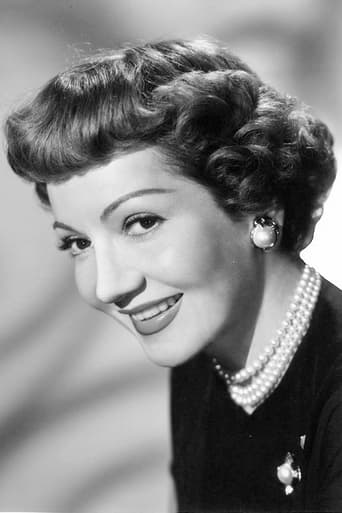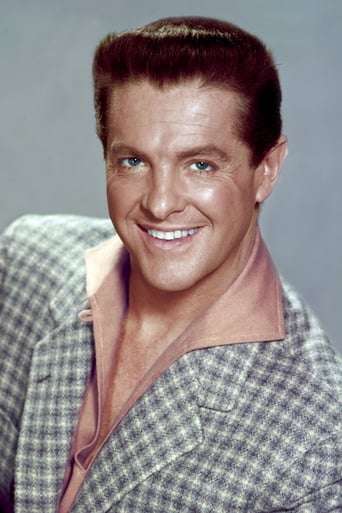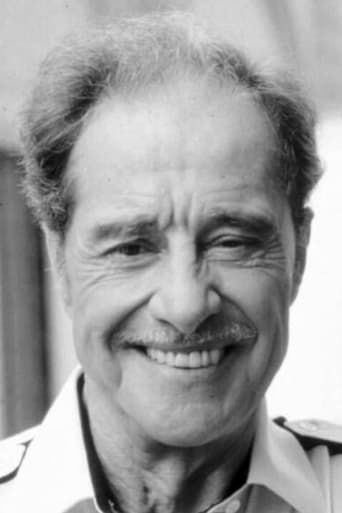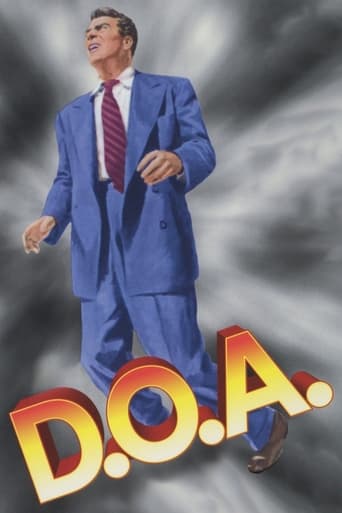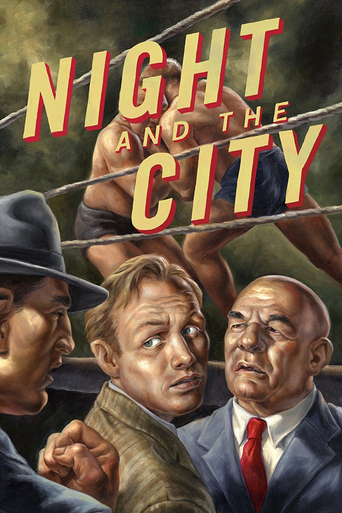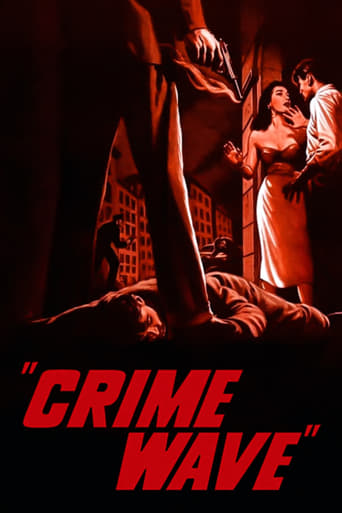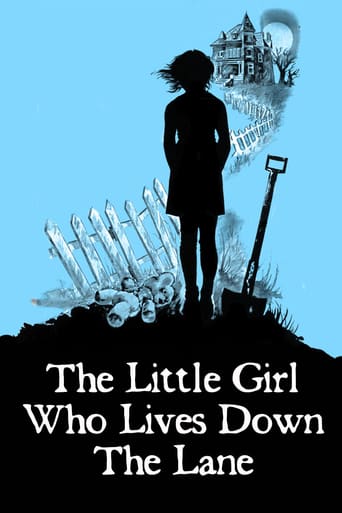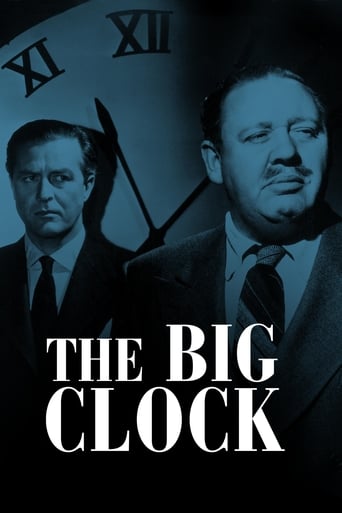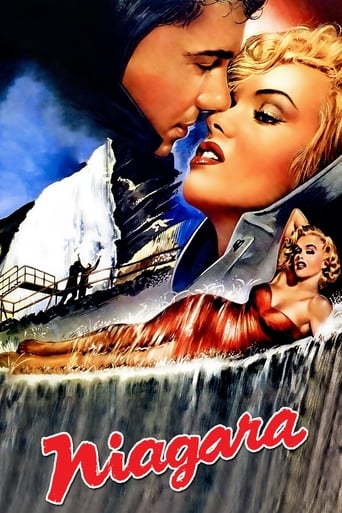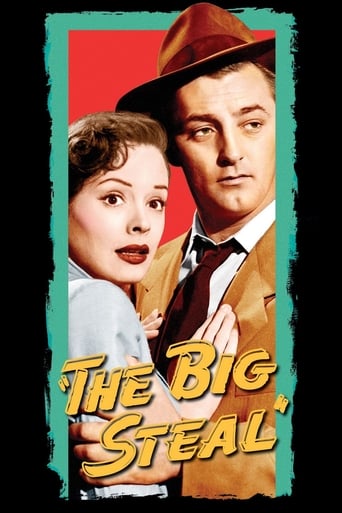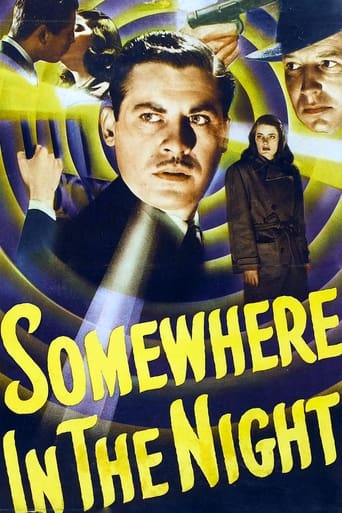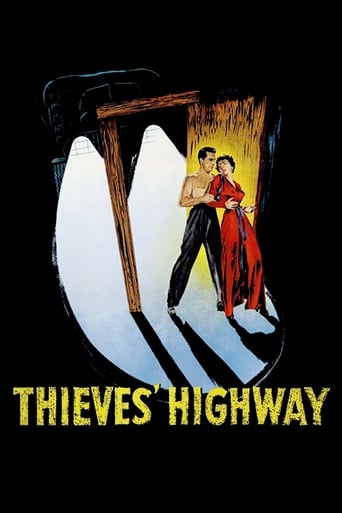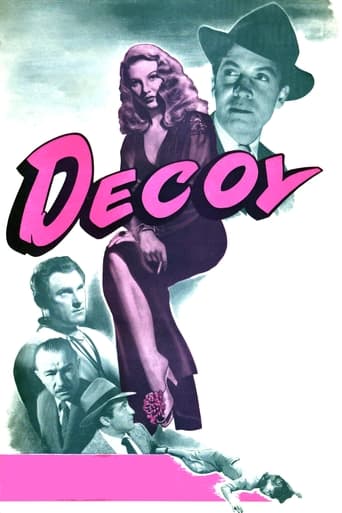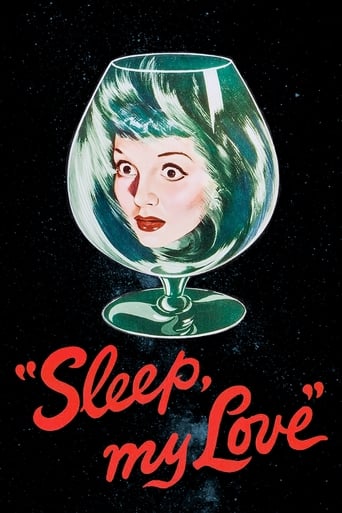
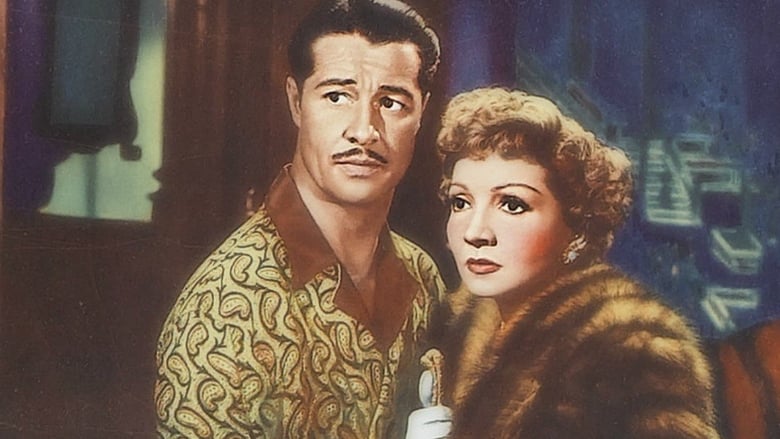
Sleep, My Love (1948)
A woman wakes up in the middle of the night on board a train, but she can't remember how she got there. Danger and suspense ensue.
Watch Trailer
Cast


Similar titles
Reviews
So what we have here is a sub Hitchcock thriller whilst not being terrible in great neither. When Alison Courtland finds herself waking on a train with a gun in hr possession and no idea of how she got there a mystery in set in motion. Is Alison going mad are or there more skuldugerous machinations in place. A well paced film where the characters are true to form and he ending very apparent this is still enjoyable, though I would not go out of my way to view the movie again. However I would spend a lazy afternoon watching it on TV. This is a movie that is definitely of its age with the lead female characters being particularly sub servant and the heroes' proper heroes. If you like noir add a star but worth a go.
Alison Courtland wakes up on a train headed out of New York, with a gun in her bag and no idea how she got there with her last memory being of falling asleep in her bed at home with her husband Richard. While Richard calls the police to report her disappearance, Alison heads home by plane with her new acquaintance Bruce. With Alison sent to a psychiatrist to help her work out what is happening inside her head that is causing her to have these episodes, Richard sneaks off with his glamorous but demanding lover, Daphne.Could Alison's episodes have a less medical cause and a more sinister one?Douglas Sirk himself has acknowledged that this is far from being one of his best films but this still has just about enough going for it to be worth seeing. The basic story opens with a really enticing and intriguing scene on the train that offered so much in the way of mystery that it was never going to be able to live up to it. And so the film very quickly becomes a pretty obvious thriller that throws in some genre clichés from noir films but never really gets gripping, dark or thrilling enough to really make a mark. The story never seems to get going because it has no real mystery to it and the only people in the world that don't catch on quickly are Alison and Bruce; this is a problem because we're meant to be going along with them and be involved but instead we are miles ahead of them and just waiting to see how it ends (although we suspect we roughly know). The characters are too thinly painted to make the film work as a noir and throwing a 'paint by the numbers' femme fatale into the mix doesn't do it either.This is not to say it is without merit because it isn't. At times it is still atmospheric (although never as good as the opening scene or two) and it does do enough to provide entertainment for a few hours but just not as much as it could have done. The fault is not really the actors because the material is pretty run of the mill and doesn't give them a lot of room to lift it. Hence we have Colbert playing a clean cut innocent type without really doing anything of interest with it while Cummings doesn't have a dark bone in his body with a clean all-American type. Ameche at least has something interesting to do and he paints his character as scheming but easily pathetic and hemmed in, in the arms of Daphne. Brooks' Daphne is right out of the noir playbook and is dull and lifeless as a result. Coulouris and Smith have a bit of fun and deliver enjoyable performances with too little screen time but that's about it. Generally the cast can do little because they have been given little.Overall this is a watchable film but the plot is obvious from the start and the script doesn't really deliver anything in the way of tension or complexity and instead paints everything with broad strokes whether it be simple characters (Alison and Bruce) or genre clichés (femme fatale and man in spell of femme fatale). Sirk's direction is still good and he uses darkness and lighting pretty well to cover some of the film with a bit of atmosphere but he himself has derided this film and I for one am not going to disagree with him to any great extent.
Sleep, My Love is Douglas Sirk's crack at Gaslight. Dabbling in drugs and Mesmerism, Don Ameche rigs up psychotic "episodes" starring his wife, Claudette Colbert, so he can inherit her money. Befriended by Robert Cummings during one of these arranged "fugue" states, she unwittingly enlists an ally whose affections, and suspicions, grow. (The film takes on inadvertent Charlie Chan overtones when Cummings goes sleuthing with his blood-brother Keye Luke, who often played the Honolulu detective's eldest offspring.)Unlike Cukor's claustrophobic Gaslight, with Ingrid Bergman and Charles Boyer, Sleep, My Love is less psychologically nuanced and more plot-driven. It benefits from Hazel Brooks, delivering an icily stylized vamp turn as The Other Woman; she appeared in one other noir, Body and Soul, during her disappointing brief career. George Couloris (the guardian in Citizen Kane) adds color as a confederate of Ameche's, while Raymond Burr is wasted as a minion of the law.That leaves the three principals as well as some problems. The amicable Ameche can't summon up the cold, controlling menace that Boyer spread through Gaslight; his adversary, the equally amicable Cummings, succumbs to terminal blandness. Colbert is more problematic. Unlike the languorous, instinctive Bergman, she made her name in part due to her quick wits; you can't buy her as a submissive wifey who hasn't cottoned on to her husband's philandering -- at the very least -- without having it spelled out to her by Cummings, whose acumen seems as low-wattage as his star power. (On the other hand, she was to find herself in a similar pickle the next year in The Secret Fury.) Sirk's direction here, as in Lured, lacks the distinctiveness he showed in his other noir, Shockproof, and was to develop lushly in the haut-fifties melodramas like Written on the Wind for which he is justly renowned.
Although this film is included in most standard reference works on film noir, it's a "women's picture," belonging to that group of films ("Gaslight," "Midnight Lace," etc.) in which a husband is trying to drive his wife to suicide so that he may inherit her money and marry the floozy he's been carrying on with. In true noir, the plot situation would be reversed: a sexy woman entrapping a man to do murder ("Double Indemnity," "The Postman Always Rings Twice" etc.)This film held my attention throughout and features a number of interesting performances. Here Don Ameche is cast against type as Richard Courtland, the conniving husband. Claudette Colbert plays Alison, his wife. She gives a satisfactory portrait of a very outgoing, charming society woman. Colbert was 44 when she made this film, but she appears younger. Raymond Burr turns up as a good guy here, playing a police lieutenant, rather opposite to the way Burr was usually cast, especially in noir. Rita Johnson does a fine bit as a ditzy rich society woman, Babry (ha!), a friend of Alison's from school days. A lot of this character would have been too much, but screenwriter St. Clair McKelway allowed her in just when she was needed to relieve tension. Hazel Brooks did a swell job as Daphne, Richard's cold, icy mistress who's in a hurry to see Alison dead so she can marry Richard and gain access to all of Alison's money. And Robert Cummings, in one of his more appealing screen portraits, plays Bruce Elcott, Mr. Right, Alison's savior.The film has a good opening. Alison wakes up on a train, not knowing how she got there. The train is shown rushing through the night, Alison unable to stop it. There's a good sense of loss of control, of being whisked along to some unknown destination, powerless to stop the force taking her there. Is this nightmare or reality?This film was directed by Douglas Sirk who went on during the 50s to direct a number of fancy melodramas with aging movie queens ("Imitation of Life"- Turner, etc.), but some of the hallmarks of those later productions are to be seen here in the fine wardrobe Colbert wears, in the fashionable Sutton Place setting, in the high society background.NOTE: MAJOR SPOILER HERE, so don't read further if you don't want to know the film's outcome. But I want to correct an error in a major noir reference source. The plot summary in Film Noir: An Encyclopedic Reference to the American Style by Alain Silver, Elizabeth Ward and others has a major error in it and Ward's comment, which follows the plot summary, makes a misinterpretation because it relies on this error.I watched the film's conclusion more than once, using the freeze frame and slow motion buttons to be sure my remarks are accurate. The film ends this way:Richard has indeed drugged Alison before she goes to sleep. He goes to the kitchen to wash carefully the glass he'd put the drug in. We also learn he's given the servants the night off. And we see Vernay come into the back yard and rear entrance of the house. Richard tells Vernay to go into the living room and stand in the same position he'd taken up some weeks earlier to frighten Alison.Richard then goes to Alison's bedroom, finds her fast asleep and begins to speak to her, suggesting that she must go down the stairs and into the living room of their home and shoot Vernay. "He's come to kill you," says Richard. "He's waiting downstairs. . . . The gun. Take the gun, there on the table." And so on. Under the influence of the drug Richard gave her earlier, Alison obeys Richard's commands. (All of this drug bit is movie hokum you'll just have to accept to enjoy this film.)When Richard and Alison stand outside the sliding doors of the living room's entrance, the shadow of Vernay looms up behind the glass of the doors. Alison is pointing the gun toward Vernay, her finger on the trigger. "Shoot before he kills you," directs Richard. She can't do it, so Richard pulls the trigger for her. The shot shatters the glass in the door and Vernay falls out of sight.Richard immediately calls the police. "I want to report a murder," he shouts into the phone. But Vernay is not dead- - just wounded. And he emerges from the living room. "Hang up that phone," he directs, and Richard does so, starting to mumble lame excuses, realizing his double-cross of Vernay has not worked. Alison has been shocked back into reality by all of this. "Mrs. Courtland, I insist that you listen," Vernay shouts and reveals details of the plot Richard and he were working against her.With that, VERNAY shoots and KILLS RICHARD. He turns to Alison and cries, "I just killed your husband, Mrs. Courtland, and now you're going to kill yourself."At that moment, in comes Bruce Elcott, who throws a lamp at Vernay. This has the unfortunate effect of plunging the room into darkness. But Bruce gives chase to Vernay, who mounts the staircase to the top of the house. Lights go off and on; gunshots are exchanged as Bruce and Vernay go up the stairs. Vernay tries to escape through the skylight at the top of the stairs but falls several stories to the entrance hall to his death. I knew that those earlier shots up the magnificent staircase had to be put to some use, and Vernay's fall to death is a spectacular climax.At this point, Bruce Elcott finds Alison and enfolds her in his arms, telling her, "Alison don't cry. In a little while, we'll be out of this house forever." The End.


